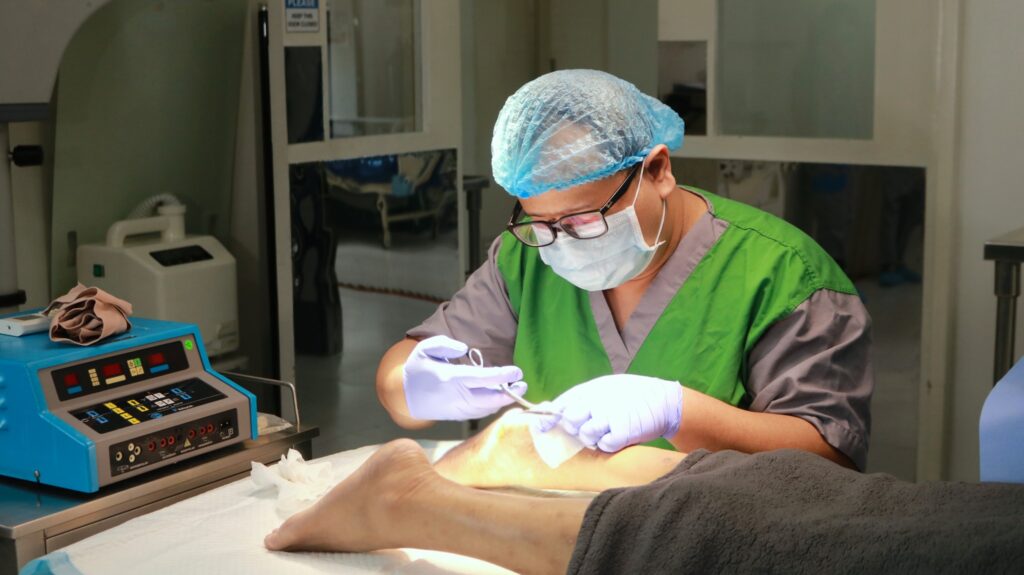Understanding Reproductive Endocrinology and Infertility
Reproductive endocrinology and infertility, often referred to as REI, is a specialized branch of medicine focused on diagnosing and treating hormonal and reproductive disorders that affect a person’s ability to conceive. These specialists possess in-depth knowledge of reproductive hormones, fertility cycles, and complex conditions that can hinder natural conception. Many individuals and couples turn to REI care after experiencing difficulty getting pregnant, irregular menstrual cycles, or repeated miscarriages. Common conditions treated in REI care include polycystic ovary syndrome, endometriosis, diminished ovarian reserve, and male factor infertility. REI specialists not only address medical issues but also guide patients through personalized treatment plans tailored to their unique situations. Understanding the role of these specialists can demystify the fertility journey and highlight the importance of early intervention. Modern reproductive endocrinology combines clinical expertise with cutting-edge technology, offering hope to families navigating complex reproductive challenges.
The Emotional and Family Impact of Infertility
Infertility can profoundly affect individuals and couples, both emotionally and psychologically. Many experience stress, anxiety, and feelings of inadequacy when they face challenges in conceiving naturally. Social and cultural expectations surrounding parenthood can intensify these emotions, making couples feel isolated or pressured. Infertility can also impact relationships, requiring couples to maintain strong communication and mutual support during treatment. Early engagement with REI specialists can help alleviate emotional strain by providing structured treatment plans and guidance. Access to counseling and support networks can further enhance emotional well-being, ensuring families do not feel alone in their journey. Addressing the emotional aspects alongside medical treatment reinforces the holistic approach of REI care and underscores why timely attention is vital for family growth.
Diagnostic Tools and Evaluations in REI Care
Accurate diagnosis is the foundation of effective fertility treatment. REI specialists employ a variety of diagnostic tools to identify underlying issues affecting reproductive health. Hormone testing is often one of the first steps, providing insights into ovarian reserve, thyroid function, and reproductive hormones that influence fertility. Ultrasounds are used to assess the structure of reproductive organs and identify conditions such as fibroids or ovarian cysts. Semen analysis evaluates male fertility factors, including sperm count, motility, and morphology. Advanced testing may include hysterosalpingography to check for fallopian tube blockages or genetic screening to detect potential hereditary concerns. These assessments allow specialists to tailor treatment plans based on accurate, personalized information. Early evaluation increases the likelihood of treatment success and provides families with a clearer understanding of their reproductive options.
Treatment Options Offered by REI Specialists
REI care provides a comprehensive range of treatment options to address various infertility challenges. Medical treatments often include hormone therapy to correct imbalances or stimulate ovulation. Ovulation induction and fertility medications can enhance the chances of conception for patients with irregular cycles. Assisted reproductive technologies, such as in vitro fertilization and intrauterine insemination, provide advanced solutions for couples who may not conceive naturally. Surgical interventions may be necessary to remove blockages, treat endometriosis, or correct anatomical issues affecting fertility. Lifestyle recommendations, including diet, exercise, and stress management, complement medical treatments by optimizing overall reproductive health.
Key Benefits of REI Care for Families
Reproductive endocrinology and infertility care goes beyond medical interventions, offering significant benefits that enhance family well-being. Some of the key advantages include:
- Personalized treatment plans tailored to individual needs
- Increased chances of conception through advanced reproductive technologies
- Early detection and management of hormonal or anatomical issues
- Emotional support and counseling to address fertility-related stress
- Holistic guidance on lifestyle factors affecting fertility
- Access to cutting-edge research and innovative treatments
- Coordination with other healthcare providers to ensure comprehensive care
These benefits highlight the importance of consulting REI specialists for anyone planning to start or expand their family. Families gain not only medical solutions but also support that addresses emotional and lifestyle aspects of fertility.
Advancements and Innovations in Reproductive Endocrinology
The field of reproductive endocrinology has seen remarkable advancements over the past decades. New technologies have improved diagnostic accuracy, allowing specialists to identify subtle reproductive issues that were previously difficult to detect. Genetic screening and embryo testing now help families make informed decisions, increasing the likelihood of successful pregnancies. Innovations in laboratory techniques and cryopreservation have expanded options for fertility preservation and family planning. Research continues to introduce emerging therapies for conditions that were once considered untreatable. These advancements empower families by providing more precise, effective, and less invasive treatment options. Staying informed about new developments ensures that couples can access the most advanced care available for building their families.
Choosing the Right REI Specialist
Selecting a qualified and experienced REI specialist is essential for a successful fertility journey. Patients should consider factors such as the specialist’s experience, success rates, treatment offerings, and patient-centered approach. Questions about treatment options, costs, expected timelines, and support services are crucial during consultations. Comfort and trust with the specialist are also vital, as open communication helps families navigate the emotional aspects of infertility. Patients may also consider online reviews, professional affiliations, and referrals from trusted healthcare providers. A strong patient-provider relationship enhances confidence in the treatment plan and improves the overall experience.
Frequently Asked Questions
How do I know if I need an REI specialist?
If you have been trying to conceive for more than six to twelve months without success, or if you have irregular cycles, recurrent pregnancy loss, or known reproductive disorders, consulting an REI specialist is recommended.
What is the success rate for fertility treatments?
Success rates vary depending on age, underlying health conditions, and the type of treatment. In vitro fertilization generally has higher success rates compared to less invasive methods, but individualized evaluation is crucial.
Can age affect fertility treatment outcomes?
Yes. Female fertility typically declines with age, and early intervention often improves success rates. Male fertility also changes over time but usually at a slower rate.
How long does the evaluation and treatment process take?
The timeline depends on the complexity of the case, required tests, and selected treatments. Some families may achieve results within months, while others may require longer-term management.
Are fertility treatments covered by insurance?
Coverage varies widely by provider and plan. Some treatments may be partially covered, while others require out-of-pocket expenses. Patients should consult their insurance provider for details.
Takeaway
Reproductive endocrinology and infertility care is more than a medical service; it is a pathway to hope and family growth. It addresses both the physiological and emotional challenges of fertility, offering personalized care, innovative treatments, and holistic support. For families struggling to conceive or seeking guidance on reproductive health, consulting an REI specialist can make a meaningful difference. By combining expertise, advanced technologies, and compassionate care, REI specialists help families achieve their dreams of parenthood and build a healthier foundation for the future.






